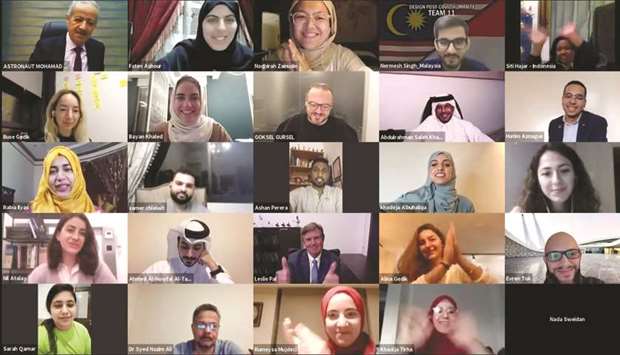Efforts to design a fairer, more inclusive and sustainable post-Covid humanity provide the foundations for a new programme launched by the College of Islamic Studies (CIS) at Hamad Bin Khalifa University (HBKU).
'Design Post-Covid Humanity: Taaruf, Taawun, Tarahum (DPCH-3T)' is an innovative, blended and multiplex educational space for the generation of fresh thinking and new ideas for living with and within the new normal awaiting societies.
The six-month programme will take motivated and inspired youth from around the world on an educational journey to unleash their transformative potential. In doing so, DPCH-3T will focus on the philosophical, spiritual and interdisciplinary dimensions of the post-Covid humanity and the key virtues of Taaruf (Acquaintance), Taawun (Co-operation) and Tarahum (Mercifulness).
The College of Public Policy and Qatar Environment and Energy Research Institute, both part of HBKU, are collaborating partners of the programme, launched on November 2 at an opening ceremony attended by organisers, sponsors and partners, and high-level dignitaries.
Notable guests included HE Dr Hamad Bin Abdulaziz al-Kawari, Minister of State and president of Qatar National Library; Taha Ayhan, president of the Islamic Co-operation Youth Forum (ICYF); Dr Hamad al-Fayyad, executive director of the Media Centre for Youth; 'Stars of Science' winner Abdulrahman al-Khamis; and Syrian astronaut Mohamed Faris.
Dr Evren Tok, assistant dean for Innovation and Community Engagement and associate professor, CIS, said: “While the future shape and trajectory of our post-Covid humanity remains uncertain, it is safe to assume that innovative thinking, leadership and ethics should inform our responses to the new reality. It is imperative that future generations are part of key decision-making processes, including here in the Middle East and North Africa. Accordingly, a global reset of humanity and society should be defined by inclusive, creative and ethically-focused problem solving mindsets that help to build stronger and more-inclusive communities.”
From start to finish, DPCH-3T will be informed by a dynamic mix of talks, networking events and interactive sessions designed specifically to help put ideas generated into practice. Training and development opportunities include classes on the Human-Centred Design approach to problem solving and collaborative digital concept mapping. Participants will also be able to seek advice and support to overcome challenges, and work with collaborating partners and stakeholders to develop human-centred designs that reflect Taaruf, Taawun and Tarahum. DPCH-3T concludes with a 30-day summit during Ramadan 2021 where participants will share experiences and reflect on lessons learned.
For further information on 'Design Post-COVID Humanity: Taaruf, Taawun, Tarahum (DPCH-3T)', one can visit https://www.hbku.edu.qa/en/cis/dpch-3t

